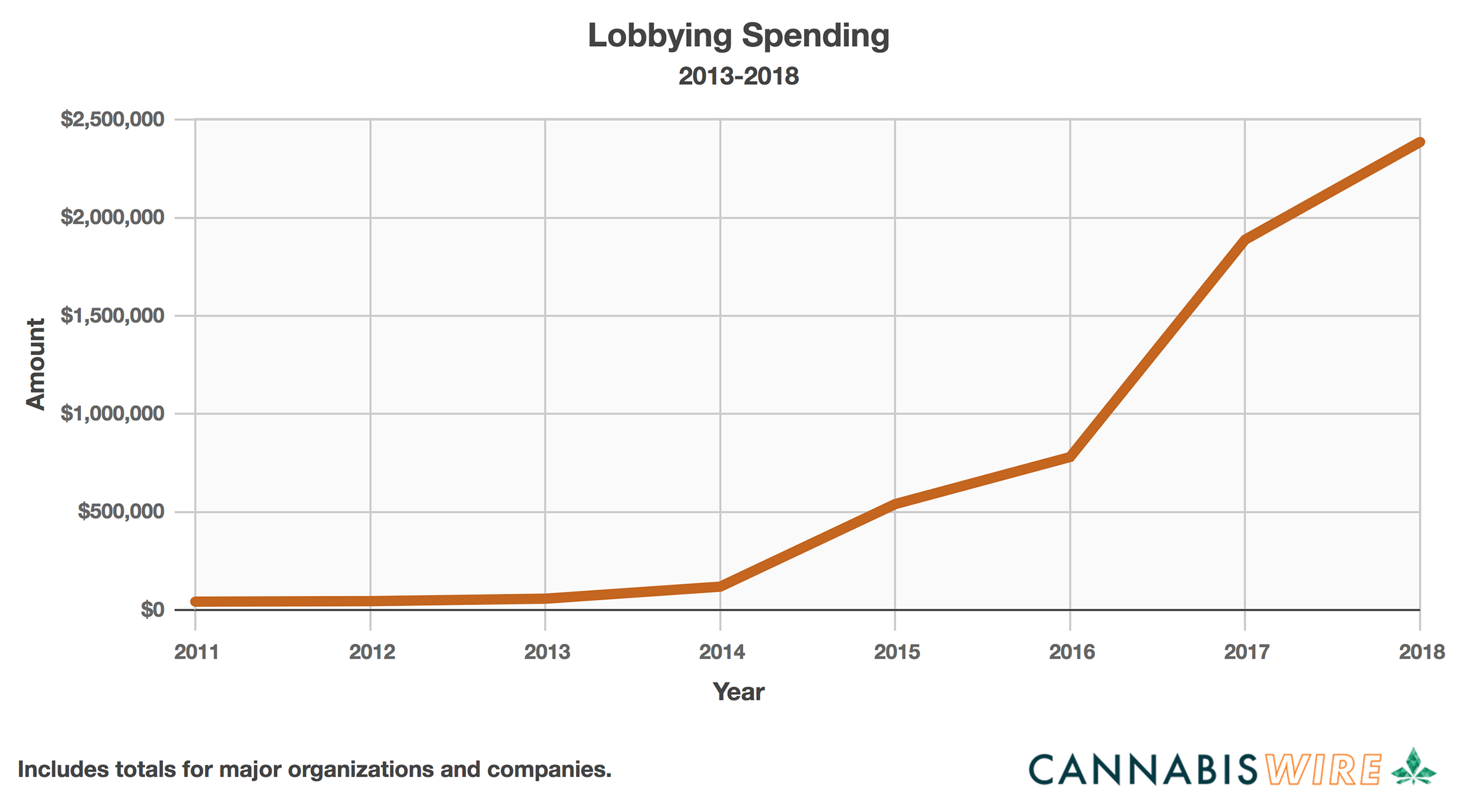

In August of 2017, a mysterious political action committee formed called the Federalist Freedom Fund. It was a joint fundraising committee between two Republican congressmen, Carlos Curbelo and Mike Coffman, as well as the two major Republican election committees, the National Republican Congressional Committee and the National Republican Senate Committee. Within a month, it raised $187,700. Six months later, it shut down and the money was disbursed four ways.
On its surface, the Fund was a standard PAC meant to support Republican causes, although it had no website or mission statement. Only after looking at the PAC’s donors would its purpose become clearer: Every single one of its donors was a giant in the booming multibillion-dollar cannabis industry. Coffman and Curbelo, who both lost reelection bids in the midterm elections last Tuesday, not only represent the key adult-use and medical cannabis markets of Colorado and Florida, respectively, but they have been rare and vocal cannabis backers in a GOP-dominated Congress.
Today, two in three Americans support legalization, according to an October Gallup survey, the type of overwhelming voter support that has begun to push even the most resistant politicians to embrace the issue.
SUBSCRIBE TO CANNABIS WIRE’S MORNING NEWSLETTER
Original news and analysis from veteran journalists—straight to your inbox every weekday morning. (This newsletter is free now, but will soon be available only to subscribers.)
The formation of the Federalist Freedom Fund marked a significant turning point. The cannabis movement has given birth to a cannabis industry, and that industry, like any other, wants to promote its own interests. And now the industry has matured enough to afford to set and pursue its own priorities. It’s not uncommon for CEOs to support candidates who support them, so the fact that cannabis businesses donated to Coffman and Curbelo should come as no surprise. But because of how the money was split, the Fund’s donors also supported all Senate and Congressional Republicans—an example of how the new cannabis industry has begun to wade more aggressively into the political sphere, and to court Republican lawmakers. The party’s support for states’ rights and free markets overlaps with the goals of an increasingly wealthy industry that is focused on taking care of business. Priorities are shifting. What gets lost and gained in the process?
Meanwhile the days of grassroots and philanthropist-backed efforts—spearheaded for decades by the movement’s pioneer cannabis advocacy groups like the National Organization for the Reform of Marijuana Laws (NORML), formed in 1970, and the Marijuana Policy Project (MPP) formed in 1995—could be waning. And, looking to cannabis law reform in the coming years, these groups could see their influence diminished in Congress, as the emerging industry opens its checkbook for lobbyists and lawmakers, potentially pulling focus toward business interests and away from, for example, criminal justice-related priorities.
When it comes to federal lobbying and direct donations to candidates and their PACs, the largest and oldest cannabis organizations in the country have already been dramatically outspent this year: Just under $1 million was spent by cannabis organizations, and just under $2 million by cannabis companies and their executives. Across the board, that spending is on the rise.

This is not a lot of money when compared with what other industries spend in Washington, DC. But it’s indicative of a foundational shift toward business-friendly legislation and priorities, a sea change that goes deeper than the flip of the House to Democrats in the midterm election.
In this series, we will explore these changing dynamics to ask what these new players and priorities mean for the future of cannabis in America.